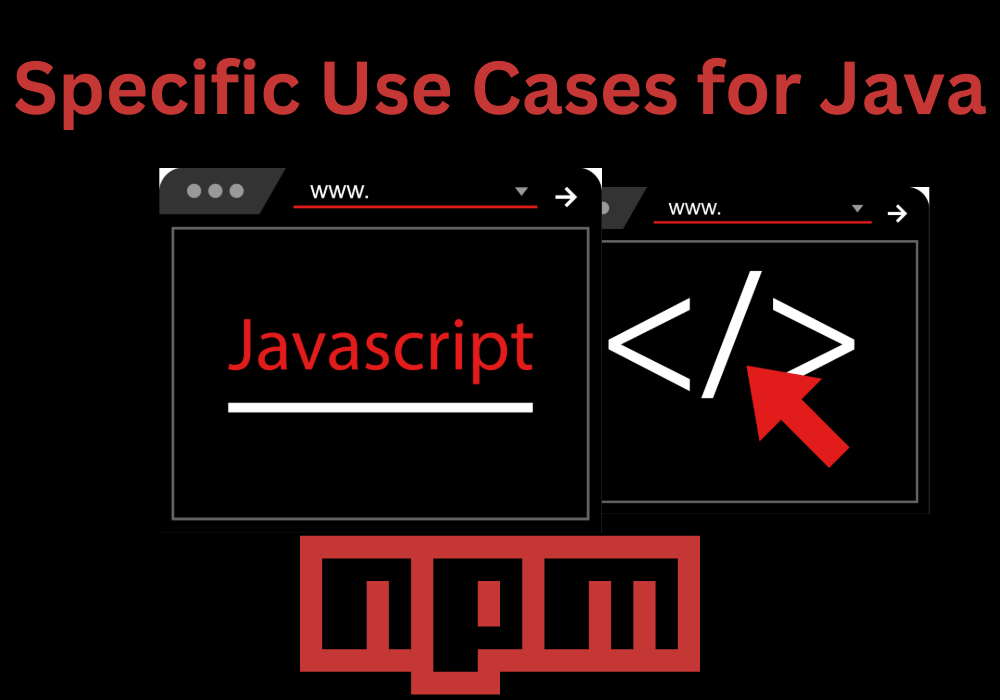Introduction: Which Use Case Best Suits Java?
Java is a versatile programming language used in a wide range of applications. “Which Use Case Best Suits Java?” Its popularity stems from its platform independence, object-oriented approach, and robust security features. However, with so many potential use cases, it can be challenging to determine which ones are the best fit for Java.
Which Use Case Best Suits Java?
Read More: Education
In this article, we will explore the most common use cases for Java, with a focus on its strengths in enterprise applications, web applications, mobile applications, big data processing, cloud computing, and more specialized domains such as machine learning, AI, IoT, blockchain, and FinTech.
By understanding the specific advantages of Java in each of these use cases, you can make informed decisions about the best programming language for your project or application
Java is a versatile programming language used in a wide range of applications. Its popularity stems from its platform independence, object-oriented approach, and robust security features. However, with so many potential use cases, it can be challenging to determine which ones are the best fit for Java.
Most Common Use Cases for Java

Java is commonly used in the following domains:
- Enterprise Applications: Java’s scalability, reliability, and security make it ideal for large-scale enterprise applications, such as CRM systems, ERP systems, and banking applications.
- Web Applications: Java’s platform independence and support for web frameworks like Spring Boot and JSF make it a popular choice for developing web applications.
- Mobile Applications: Java’s portability and compatibility with Android’s Java Virtual Machine (JVM) make it suitable for developing mobile applications.
- Big Data Processing: Java’s powerful libraries, such as Hadoop and Spark, enable efficient processing of large datasets.
- Cloud Computing: Java’s compatibility with cloud platforms like AWS and Azure makes it a good choice for developing cloud-based applications and services.
Specific Use Cases for Java

Beyond these general categories, Java excels in several specific use cases:
- Machine Learning: Java’s machine learning libraries, such as TensorFlow and Weka, facilitate the development of machine learning models.
- Artificial Intelligence: Java’s support for AI techniques, such as natural language processing and computer vision, makes it suitable for developing AI applications.
- Internet of Things (IoT): Java’s low memory footprint and energy efficiency make it a good choice for developing IoT devices and applications.
- Blockchain: Java’s security features and support for distributed systems make it suitable for developing blockchain-based applications.
- FinTech: Java’s reliability and security make it a popular choice for developing financial applications, such as online banking and trading platforms.
Java’s Advantages in Different Use Cases

Java offers several advantages that make it suitable for a variety of use cases:
- Platform Independence: Java’s “write once, run anywhere” principle allows applications to run on different operating systems and hardware architectures.
- Object-Oriented Programming: Java’s object-oriented approach promotes code reusability, maintainability, and extensibility.
- Robust Security: Java’s strong security features, such as type safety and exception handling, protect applications from vulnerabilities.
- Extensive Library Ecosystem: Java has a vast repository of libraries and frameworks that support a wide range of functionalities.
Conclusion: Which Use Case Best Suits Java?
Java is a versatile programming language that can be applied to a diverse range of use cases. Its platform independence, object-oriented approach, security features, and extensive library ecosystem make it a suitable choice for developing enterprise applications, web applications, mobile applications, big data processing, cloud computing, and various specialized domains such as machine learning, AI, IoT, blockchain, and FinTech.
FAQs
Which Use Case Best Suits Java?
Java is a versatile programming language that can be used in a wide range of applications. Its strengths include platform independence, object-oriented programming, and robust security features. Some of the most common use cases for Java include:
- Enterprise applications: Java’s scalability, reliability, and security make it a good choice for large-scale enterprise applications, such as CRM systems, ERP systems, and banking applications.
- Web applications: Java’s platform independence and support for web frameworks like Spring Boot and JSF make it a popular choice for developing web applications.
- Mobile applications: Java’s portability and compatibility with Android’s Java Virtual Machine (JVM) make it suitable for developing mobile applications.
- Big data processing: Java’s powerful libraries, such as Hadoop and Spark, enable efficient processing of large datasets.
- Cloud computing: Java’s compatibility with cloud platforms like AWS and Azure makes it a good choice for developing cloud-based applications and services.
In addition to these general use cases, Java is also well-suited for several specialized domains, including:
- Machine learning: Java’s machine learning libraries, such as TensorFlow and Weka, facilitate the development of machine learning models.
- Artificial intelligence: Java’s support for AI techniques, such as natural language processing and computer vision, makes it suitable for developing AI applications.
- Internet of Things (IoT): Java’s low memory footprint and energy efficiency make it a good choice for developing IoT devices and applications.
- Blockchain: Java’s security features and support for distributed systems make it suitable for developing blockchain-based applications.
- FinTech: Java’s reliability and security make it a popular choice for developing financial applications, such as online banking and trading platforms.
Overall, Java is a versatile programming language that can be used in a wide range of applications. Its strengths in platform independence, object-oriented programming, and security make it a suitable choice for developing enterprise applications, web applications, mobile applications, big data processing, cloud computing, and various specialized domains.
Q: Why is Java considered a good choice for enterprise applications?
A: Java’s scalability, reliability, and security make it suitable for handling large-scale enterprise systems.
Q: What are the advantages of using Java for web development?
A: Java’s platform independence and support for web frameworks provide flexibility and ease of development for web applications.
Q: How is Java used in mobile application development?
A: Java’s compatibility with Android’s JVM allows developers to create cross-platform mobile applications.
Q: What makes Java suitable for big data processing?
A: Java’s powerful libraries, such as Hadoop and Spark, enable efficient processing and analysis of large datasets.
Q: Why is Java often used in cloud computing?
A: Java’s compatibility with cloud platforms like AWS and Azure makes it a good choice for developing cloud-based applications and services.


